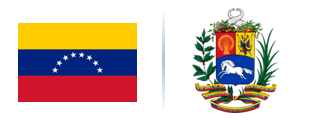Last Update: September 2025


| International Covenant on Economic, Social and Cultural Rights | International Convention on the Elimination of all Forms of Racism | Convention on the Rights of Persons with Disabilities | Convention on the Elimination of all Forms of Discrimination against Women | Convention on the Rights of the Child | International Convention on the Protection of the Rights of All Migrant Workers and Members of their Families | Constituent Agreement of the Development Fund for Indigenous Peoples in Latin America and the Caribbean |
| 10 May 1978 | 10 October 1967 | 24 September 2013 | 2 May 1983 | 13 September 1990 | 4 October 2011 | 13 May 2002 |
| View details | View details | View details | View details | View details | View details | View details |
Year of Latest Observed Constitution |
Social Housing |
Work and Social Security |
Public Health |
Public Education |
Social Development |
Children and Adolescents |
Youth/Young Adults |
Women |
Older Persons |
Persons with Disabilities |
Afrodecendants and Indigenous Peoples |
Migrants |
| 1999 | ||||||||||||
| View details | View details | View details | View details | View details | View details | View details | View details | View details | View details | View details | View details |
Children and Adolescents |
Youth/Young Adults |
Older Persons |
Women |
Peoples with Disabilites |
Afrodescendants and Indigenous Peoples |
Migrants |
Public Education |
Work and Social Security |
Social Housing |
Public Health |
Social Development |
|
| Legal Instrument | Ley orgánica para la protección de niños, niñas y adolescentes | Ley Nacional de la Juventud (Ley núm. 37404) | Ley de Serviciós Sociales al adulto Mayr | Ley de Igualdad de Oportunidades para la Mujer | Ley para Personas con Discapacidad | Decreto de 2005 - Comisión Presidencial para la Prevención y Eliminación de todas las Formas de Discriminación Racial y otras Distinciones en el Sistema Educativo Venezolano. | Ley Nº 37944, "Ley de Extranjería y Migración"" (2004)" | Ley Orgánica de Educación | Ley Orgánica del Trabajo, los Trabajadores y Trabajadoras | Ley del Régimen Prestacional de Vivienda y Hábitat | Ley Orgánica del Sistema Nacional de Salud | n.d. |
| Law | Law | Law | Law | Law | Law | Law | Law | Law | Law | Law |
| Country | Venezuela (Bolivarian Republic of) |
| Main authority | Vicepresidencia Sectorial del Socialismo Social y Territorial |
| Year of creation | 2019 |
| Coordinating authority | Vicepresidente(a) Sectorial del Socialismo Social y Territorial |
| Members | Ministerios con competencia en las materias de hábitat y vivienda, comunas, salud, pueblos indígenas, mujer y la igualdad de género, juventud y el deporte, proceso social del trabajo, ciencia y tecnología, educación y educación universitaria. |
| Country | Venezuela (Bolivarian Republic of) |
| Main authority | People's Ministry for Communes and Social Movements |
| Year of creation | 2013 |
| Mission | Implementar políticas sociales propias del ejercicio democrático y vitales del Estado venezolano en materia de promoción, asistencia y desarrollo social integral y participativo, a través de comités, planes, programas y proyectos del sistema de protección social, fundamentado en la integralidad no solo de la atención inmediata y directa al afectado o grupo social vulnerado en situación de pobreza extrema o máxima exclusión social, sino también al contexto social que rodea a la población afectada o vulnerable en posible riesgo. |
| Incumbent | Ricardo Menéndez (2014) |
| Population segment | Children and Adolescents |
Youth/Young Adults |
Older Persons |
Persons with Disabilities |
Women |
Migrants |
| Main protection mechanism | Ministerio del Poder Popular a través del Instituto Autónomo Consejo Nacional de Derechos de Niños, Niñas y Adolescentes | Instituto Nacional del Poder Popular de la Juventud | Consejo Presidencial de los Adultos Mayores de Venezuela | Consejo Nacional para las Personas con Discapacidad (CONAPDIS) | Ministerio del Poder Popular para la Mujer y la Igualdad de Genero | Comisión Nacional de Migración |
| Legal Instrument | Ley Orgánica para la Protección del Niño y del Adolescente (LOPNA) (2000) | Ley Nacional de la Juventud (Ley núm. 37404) | Ley de Servicios Sociales al Adulto y Adulta Mayor | Ley para las personas con discapacidad | Ley Nº 37944, "Ley de Extranjería y Migración" (2004) |
|
Technical-operational dimension | |||||||
| Unique Registry of Participants | Sistema Integrado de Administración Financiera /b | Sectoral Plan for Social Development | Transparence - system for accessing public information from the State | Integrated Social Information System |
Evaluation mechanisms for social programs |
|||
General |
Sectorial |
General |
Sectorial |
|||||
| Ministerio del Poder Popular de Planificación | ||||||||